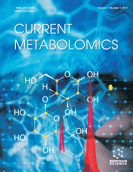Abstract
In the industrialized world, functional foods have become part of a diet that provide potential health benefits by curbing various diseases. Currently, the most commonly used functional foods are probiotics which reduce damages caused by oxidative stress and reactive oxygen species (ROS). Probiotics are live microbes used as a therapeutic food with fewer side effects in comparison to other therapeutic agents. The incorporation of probiotics in foods shows many medicinal properties by acting as antioxidant, anti-inflammatory, anti-bacterial and anti-cancer agents. As such probiotic foods (fermented dairy products, drinks, fruits, vegetables, etc.) can affect the individual by raising the existing gastrointestinal flora with live microbial nutritional supplements and improve the microbial balance of Lactobacillus, Bifidobacterium and several other microbial species in the gastrointestinal tract, which causes an alteration in carcinogen metabolism as well as regulation of the immune system. Accumulating evidence highlighted that probiotics have therapeutic effects with a reduction of invasion and metastasis in cancer cells by modulating key signaling pathways. Globally probiotics market extent was valued at $ 48.38 billion in 2018 and expanded at 6.9% annually which indicates the rising demand for probiotics worldwide. Hence, the chapter sheds light on the current state of probiotics and their potential applications for human health and in the development of modern therapeutic drugs for the treatment of diseases.
Keywords: Antioxidant, Immunity, Metastasis, Oxidative stress, Probiotics, ROS.

















